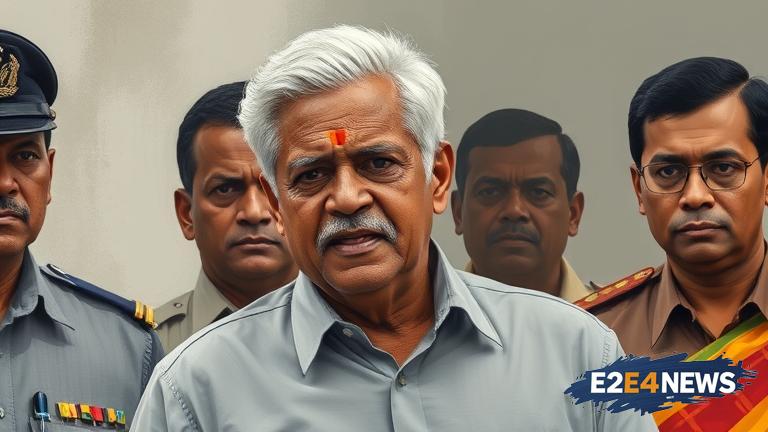The recent arrest of former Sri Lankan President Ranil Wickremesinghe has sent shockwaves throughout the country, with many fearing that the move is a clear example of a political vendetta. Wickremesinghe, who served as the President of Sri Lanka from 2022 to 2023, was taken into custody by the authorities on charges of corruption and mismanagement of the economy. The arrest has been widely condemned by the opposition parties, who claim that it is a blatant attempt to silence a prominent political figure. The international community has also expressed concern over the arrest, with many calling for Wickremesinghe’s immediate release. The United States, the European Union, and other countries have issued statements urging the Sri Lankan government to respect the rule of law and ensure that Wickremesinghe is treated fairly. The arrest has also sparked widespread protests across the country, with many Sri Lankans taking to the streets to demand Wickremesinghe’s release. The protesters claim that the arrest is a clear example of political persecution and that the government is trying to intimidate the opposition. The Sri Lankan government has defended the arrest, claiming that Wickremesinghe is being held on legitimate charges and that the law will be allowed to take its course. However, many experts believe that the arrest is a clear example of a political vendetta, aimed at silencing a prominent opponent of the current government. Wickremesinghe has been a vocal critic of the current government, and his arrest is seen as a move to muzzle his criticism. The arrest has also raised concerns about the state of democracy in Sri Lanka, with many fearing that the country is sliding towards authoritarianism. The international community has been watching the situation closely, with many calling for the Sri Lankan government to respect human rights and the rule of law. The arrest of Wickremesinghe has also sparked a debate about the role of the judiciary in Sri Lanka, with many questioning the independence of the courts. The opposition parties have claimed that the judiciary is being used as a tool to persecute political opponents, and that the arrest of Wickremesinghe is a clear example of this. The Sri Lankan government has denied these claims, stating that the judiciary is independent and that the law is being applied equally to all. However, many experts believe that the arrest of Wickremesinghe is a clear example of political interference in the judiciary, and that the country’s democratic institutions are under threat. The arrest has also raised concerns about the economy of Sri Lanka, with many fearing that the political instability will have a negative impact on the country’s economic growth. The international community has urged the Sri Lankan government to take steps to address the economic crisis, and to ensure that the country’s democratic institutions are protected. The arrest of Wickremesinghe has also sparked a debate about the role of the international community in promoting democracy and human rights in Sri Lanka. Many have called for the international community to take a stronger stance against the Sri Lankan government, and to impose sanctions if necessary. The situation in Sri Lanka is being closely watched by the international community, with many fearing that the country is on the brink of a major crisis. The arrest of Wickremesinghe has raised concerns about the future of democracy in Sri Lanka, and the international community is urging the government to respect human rights and the rule of law. The Sri Lankan government must take steps to address the concerns of the international community, and to ensure that the country’s democratic institutions are protected. The arrest of Wickremesinghe is a clear example of a political vendetta, and the international community must take a strong stance against such actions. The people of Sri Lanka deserve to live in a democratic country, where the rule of law is respected and human rights are protected.
